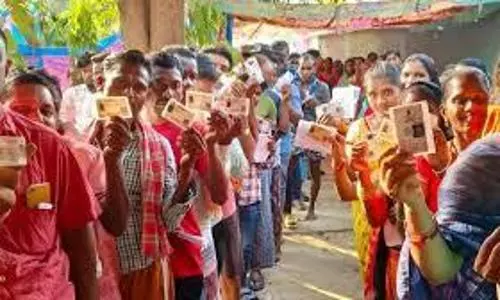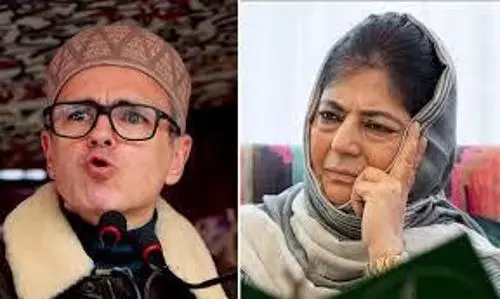
The country is its people, not just plots of land
text_fieldsRahul Gandhi's comment on the division of Kashmir into two union terrotories via social media ran 'The country is made by its people, not plots of land'. This amounts to saying that the bill introduced in parliament by home minister Amit Shah, writing off Kashmiris entirely at the same time rounding up all people's representatives of the valley, is one that does not heed popular aspirations.
Any one with human tenderness would wish that when the scenically beautiful Kashmir is made an integral part of India, that will be by giving due respect for the wishes of its people and by ensuring peaceful life for Kashmiris who for decades have been caught in the line of gunfire of extremists and the military alike. Rahul Gandhi's remarks obliquely hints at this.
India had informed the UN Security Council on 3 January 1948 that it was ready to conduct a plebiscite in Kashmir, and on 24 July, 1952 India signed a treaty to accord full autonomy to Kashmir. Later, on 20 August 1953, India and Pakistan reached an understanding to appoint an Administrator to hold a plebiscite before April 1954. Subsequently, India rejected the demand for plebscite citing various reasons and declared Kashmir an integral part of India, but even then had not denied Kashmiris their constitutional rights.
No one can deny that Kashmirs, like any other citizens of India, have a right to freely live, travel, earn education, engage in employment and express opinions. Any prudent government with long sight should obviate diplomatically and through democracy any circumstances that stand in the way of such rights. The first thing needed for that is to take the people into confidence. But what all those who ruled Jammu-Kashmir hitherto and the central rulers, lacked is commitment to the people. There is no point or justification in blaming BJP alone in this respect. Now is the time (if not now, when?) for the Congress, which ruled for long the Centre and Jammu-Kashmir, and its leaders, to make an introspection about the policies they adopted.
One cannot help asking if Congress leaders – right from Jawaharlal Nehru, the first prime minister of the country and the great soul in power when the country approved its secular, democratic constitution, upto the quiet and suave Manmohan Singh, had made any sincere effort to take the Kashmiri people into confidence and talked to them directly to find a resolution for the Kashmir issue. It calls for a rethinking on what they did to safeguard India as a peaceful, democratic country without waiting till – and foreseeing the risk of - the shrewd moves of the extreme right wing bearing fruit.
What needs a candid confession is about the role of Indian National Congress in handing power to the communal-sectarian forces who are adept at talking round the clock about arms mobilization, military power and maitaining enmity towards neighbours, and proving through word and deed that patriotism is not love for its people but passion for the land. Congress that became orphaned with the resignation of Rahul Gandhi is literally facing a challenge of survival. And the party's chief whip in Rajya Sabha has even gone to the extent of resigning his post - and even supporting BJP - over the Congress not endorsing the Kashmir division bill. The party is also facing an internal unrest with its senior leader from Kashmir, and leader in Rajya Sabha, Gulam Nabi Azad having taken a firm stance on the issue.
One has to figure out that not only does the Congress have no unequivocal stand in the issue, but the mind-set of many of them has been tuned towards Hindutva extremism. People are prompted to believe that it is not only the BJP – ruling the country with a brute majority - but also the chief opposition Congress that adopts the same position towards Kashmir. The dangerous message conveyed by this situation is that the country is slipping away from its path of secularism, democrary and peace. As such, it hardly needs to be proved that a proportionate extent of feeling of insecurity and helpless will grow in the neutral-minority minds, and it will also distance the party from the backward-minority sections who were instrumental in giving Congress its current foothold in parliament.























